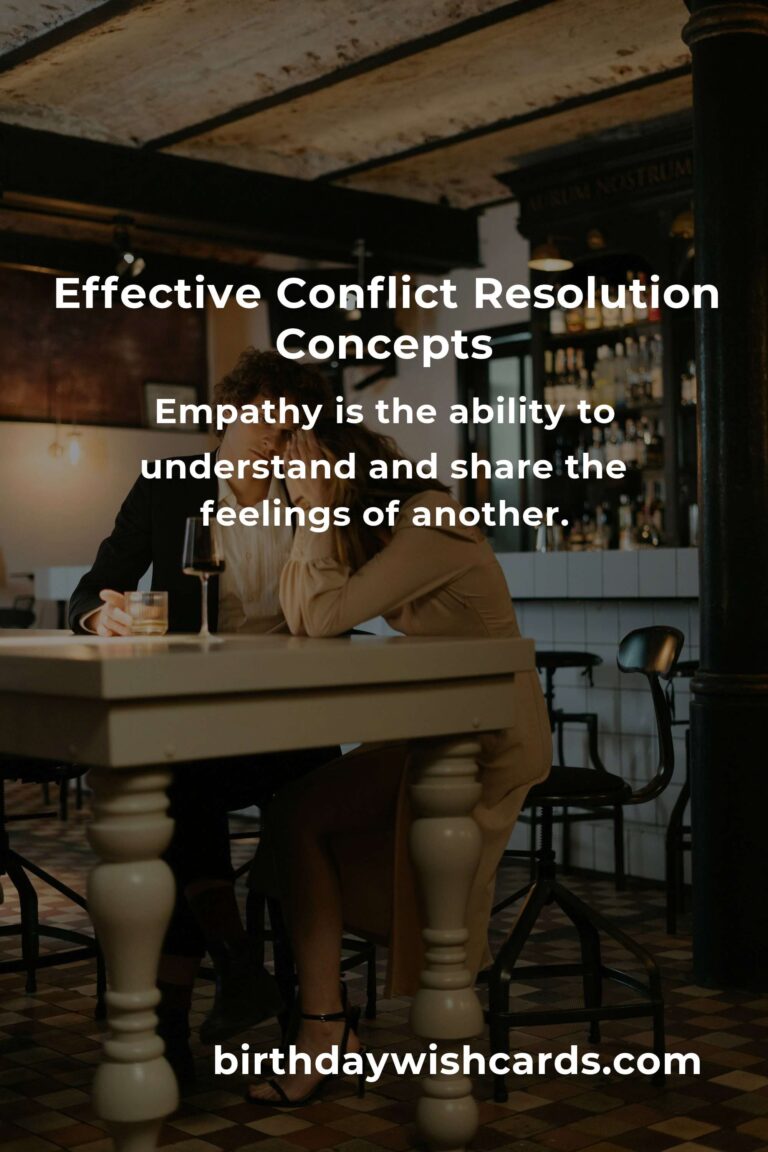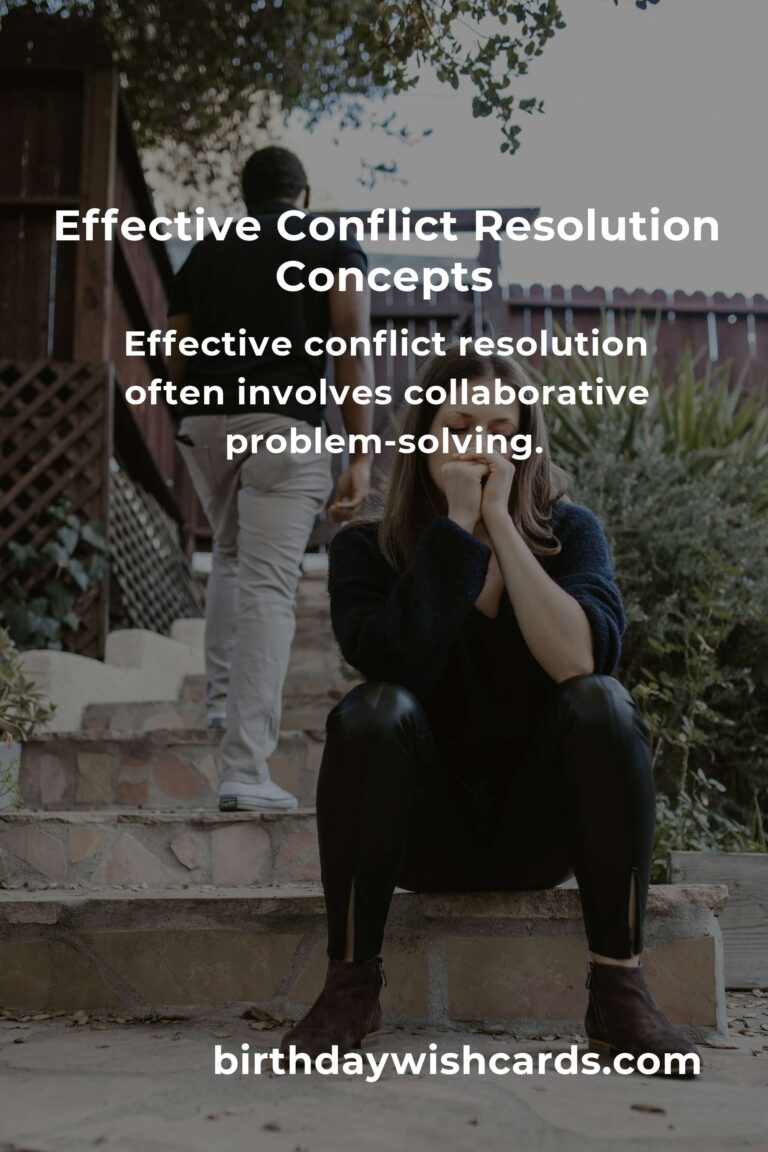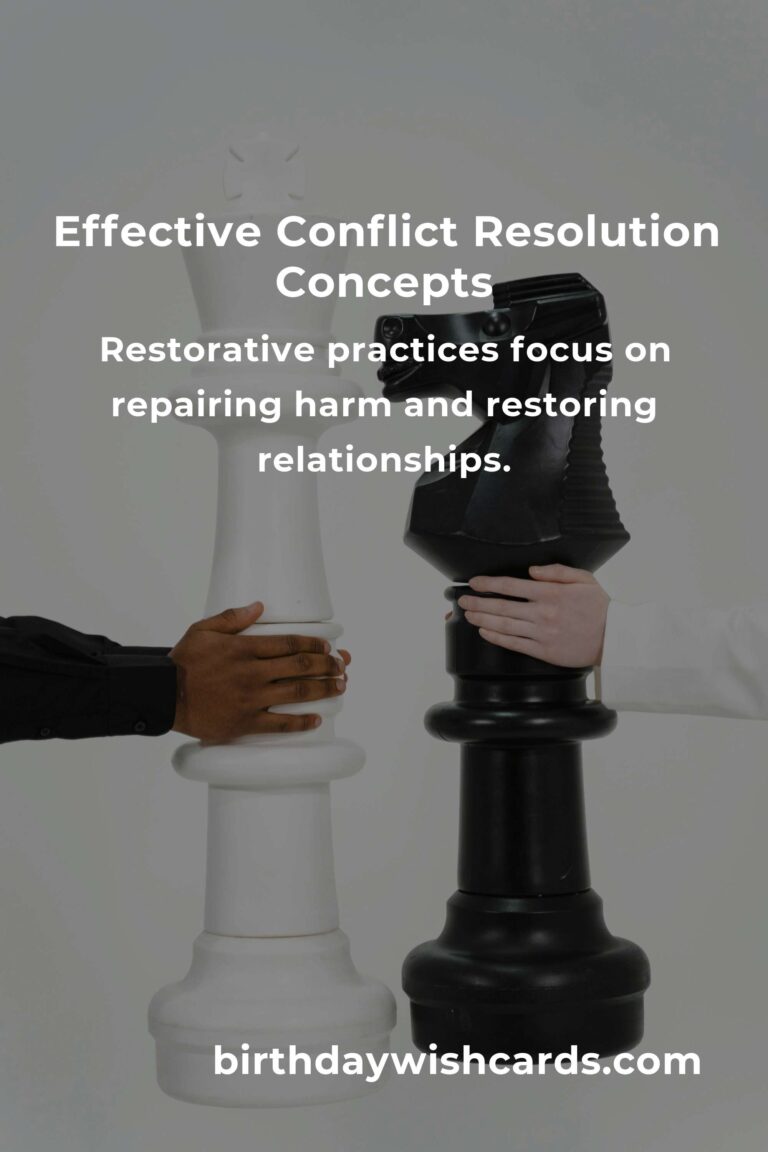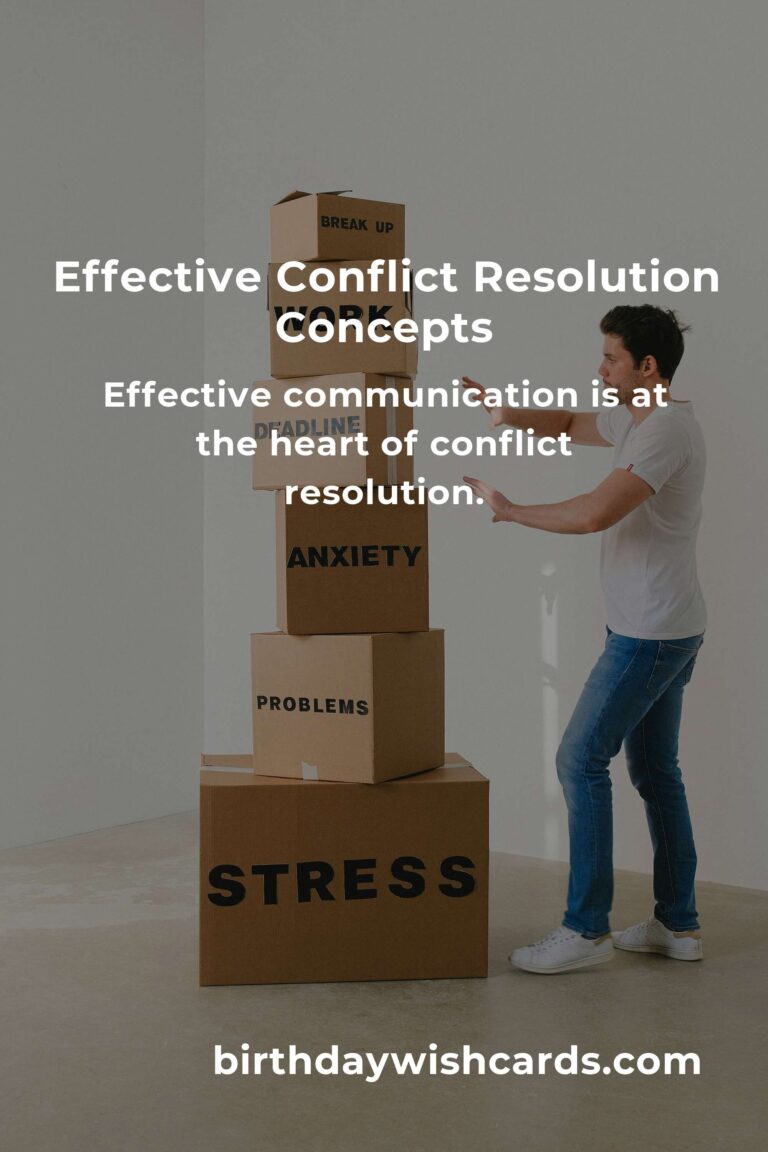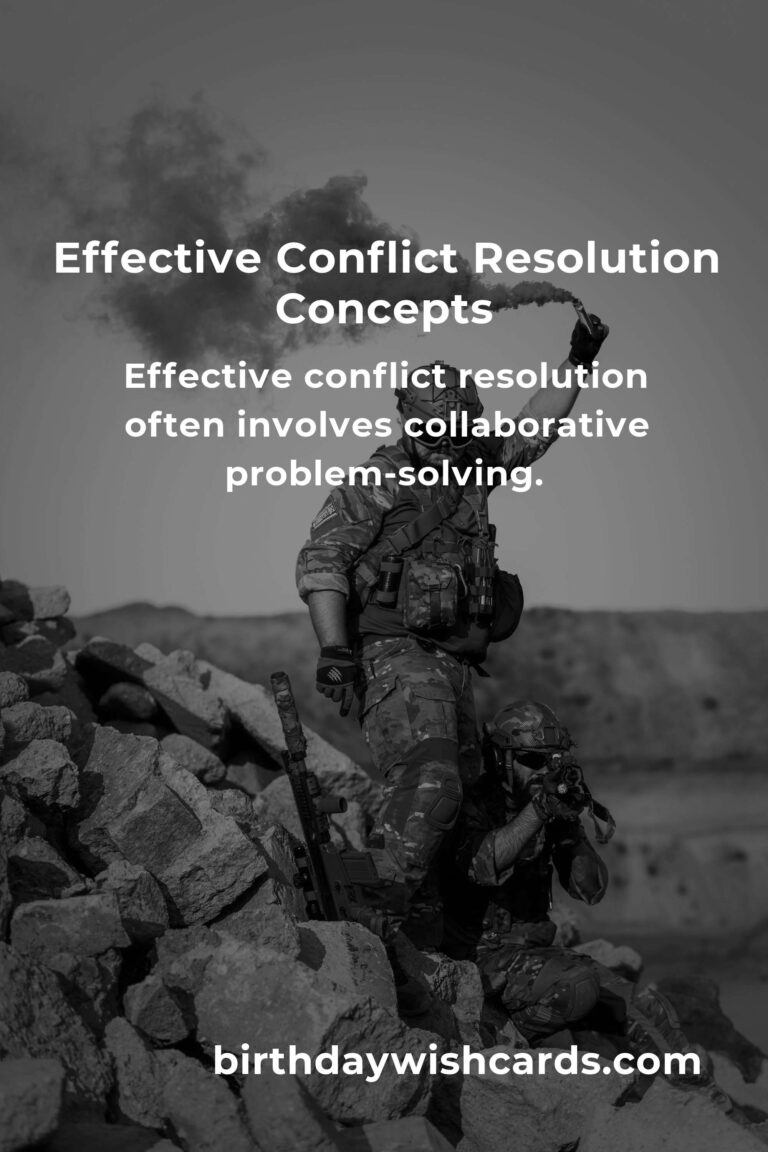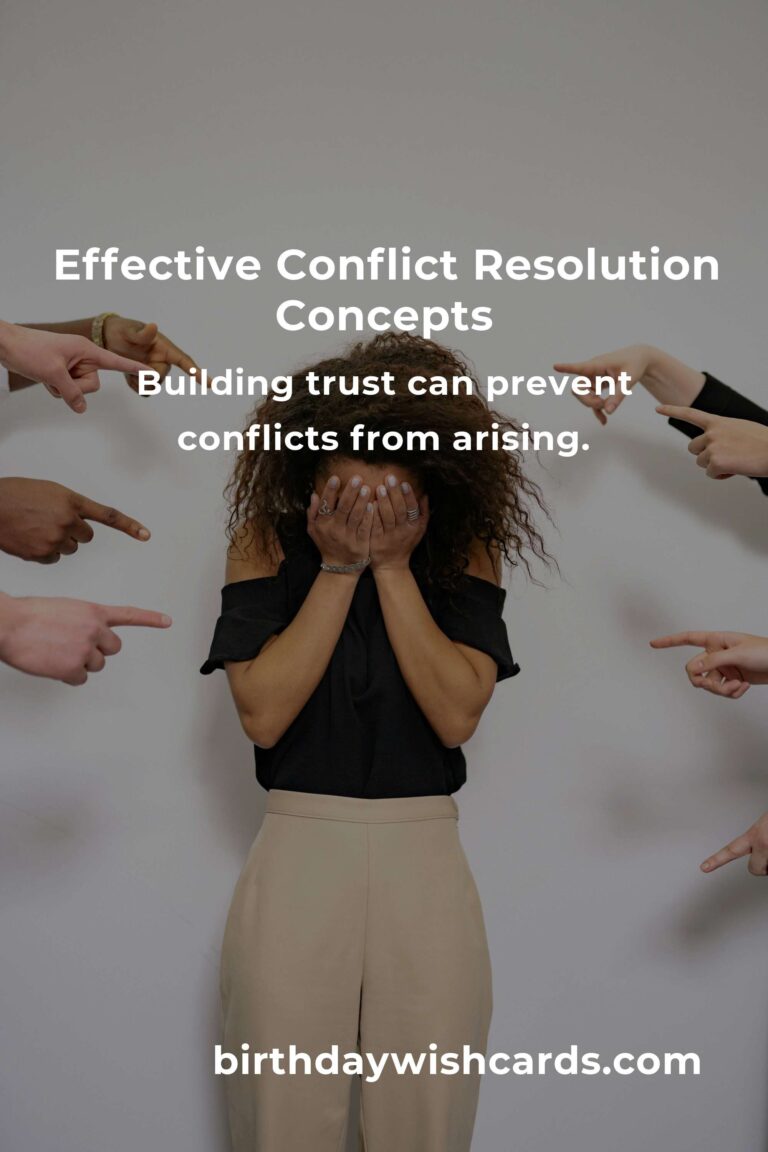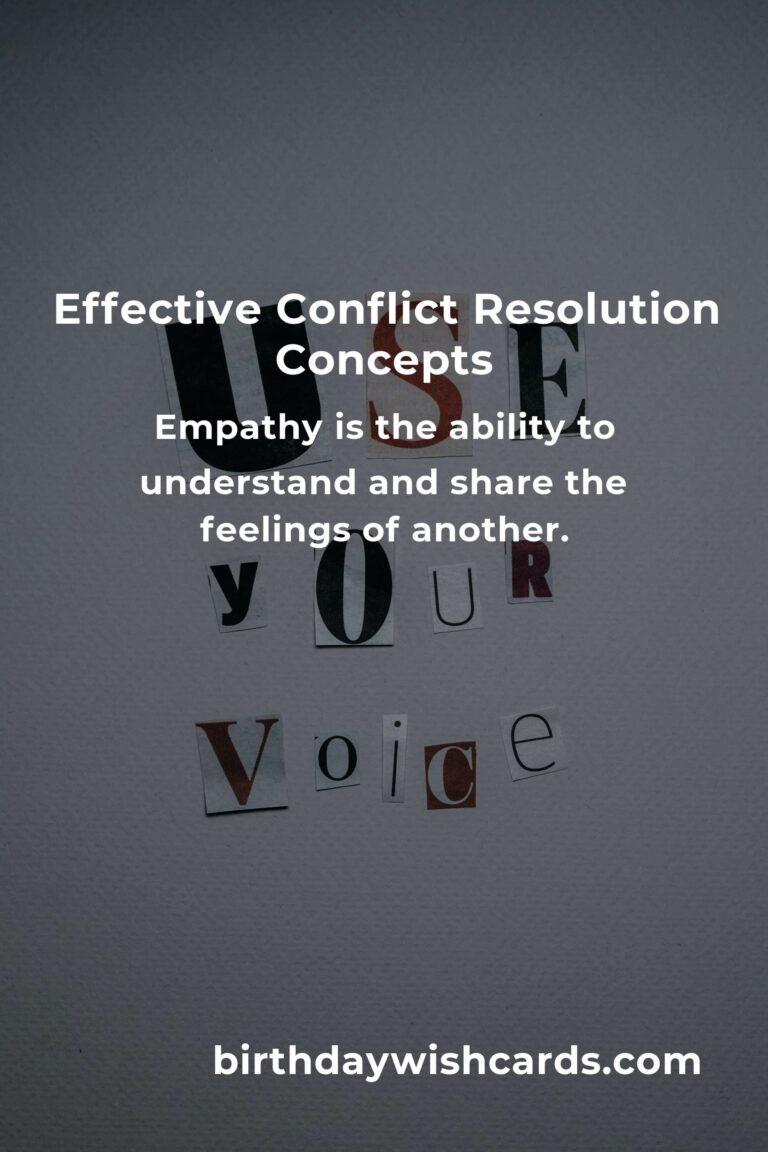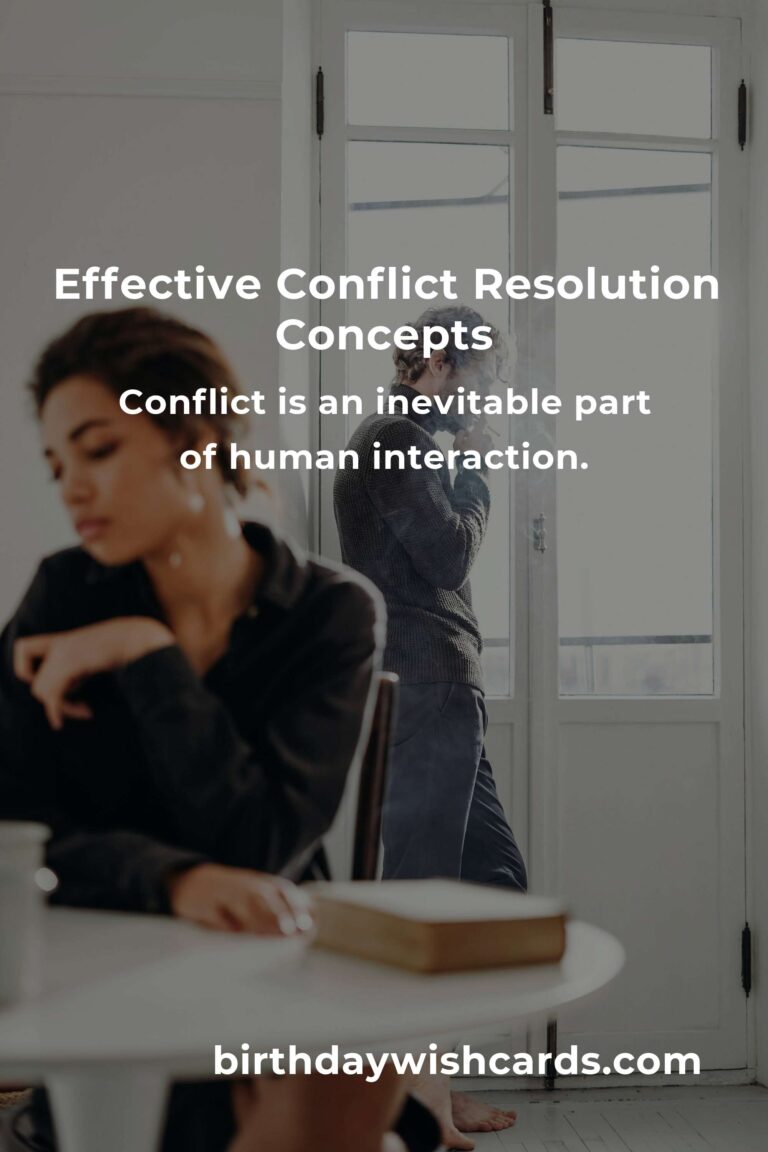
Conflict is an inevitable part of human interaction, whether in personal relationships, workplaces, or communities. Understanding and applying effective conflict resolution concepts can lead to more harmonious relationships and productive environments. Here, we delve into the top 15 conflict resolution concepts that can be used to navigate and resolve disputes effectively.
1. Active Listening
Active listening is a crucial component of conflict resolution. It involves fully concentrating, understanding, responding, and then remembering what the other person is saying. This helps in minimizing misunderstandings and promotes empathy.
2. Empathy
Empathy is the ability to understand and share the feelings of another. By empathizing with the other party, you can better understand their perspective and find common ground.
3. Assertiveness
Being assertive means expressing your thoughts and feelings confidently and respectfully. Assertiveness helps in communicating needs clearly without being aggressive.
4. Problem-Solving
Effective conflict resolution often involves collaborative problem-solving. This concept focuses on finding a solution that satisfies all parties involved.
5. Negotiation
Negotiation is a process by which parties come to a mutually acceptable agreement. It involves compromise and understanding each other’s needs and positions.
6. Mediation
Mediation involves a neutral third party who assists in resolving conflicts by facilitating communication between disputants. Mediators help parties reach a voluntary agreement.
7. Conflict Styles
Understanding different conflict styles (avoiding, accommodating, competing, compromising, and collaborating) can help individuals adapt their approach depending on the situation.
8. Emotional Intelligence
Emotional intelligence is the ability to recognize, understand, and manage our own emotions and the emotions of others. High emotional intelligence can help in de-escalating conflicts.
9. Communication Skills
Effective communication is at the heart of conflict resolution. Skills such as clarity, tone, non-verbal cues, and active listening are essential.
10. Patience
Resolving conflicts can take time, and patience is key. Rushing the process can lead to unresolved issues and further disputes.
11. Understanding Cultural Differences
Cultural differences can affect how conflict is perceived and resolved. Being aware and respectful of these differences is important in a multicultural setting.
12. Setting Boundaries
Setting clear boundaries can prevent conflicts from arising. It involves defining acceptable behaviors and limits within relationships or work environments.
13. Restorative Practices
Restorative practices focus on repairing harm and restoring relationships rather than assigning blame. This concept is widely used in educational settings and communities.
14. Forgiveness
Forgiveness can be a powerful tool in conflict resolution. It allows individuals to move past grievances and rebuild relationships.
15. Building Trust
Trust is the foundation of any healthy relationship. Building and maintaining trust can prevent conflicts from arising and facilitate smoother resolutions.
By incorporating these concepts into daily interactions, individuals and organizations can create more peaceful and cooperative environments.
Conflict is an inevitable part of human interaction. Active listening involves fully concentrating, understanding, responding, and then remembering what the other person is saying. Empathy is the ability to understand and share the feelings of another. Being assertive means expressing your thoughts and feelings confidently and respectfully. Effective conflict resolution often involves collaborative problem-solving. Negotiation is a process by which parties come to a mutually acceptable agreement. Mediation involves a neutral third party who assists in resolving conflicts. Understanding different conflict styles can help individuals adapt their approach. Emotional intelligence can help in de-escalating conflicts. Effective communication is at the heart of conflict resolution. Patience is key in resolving conflicts. Being aware and respectful of cultural differences is important. Setting clear boundaries can prevent conflicts from arising. Restorative practices focus on repairing harm and restoring relationships. Building trust can prevent conflicts from arising.
#ConflictResolution #CommunicationSkills #Empathy #Negotiation #Mediation


